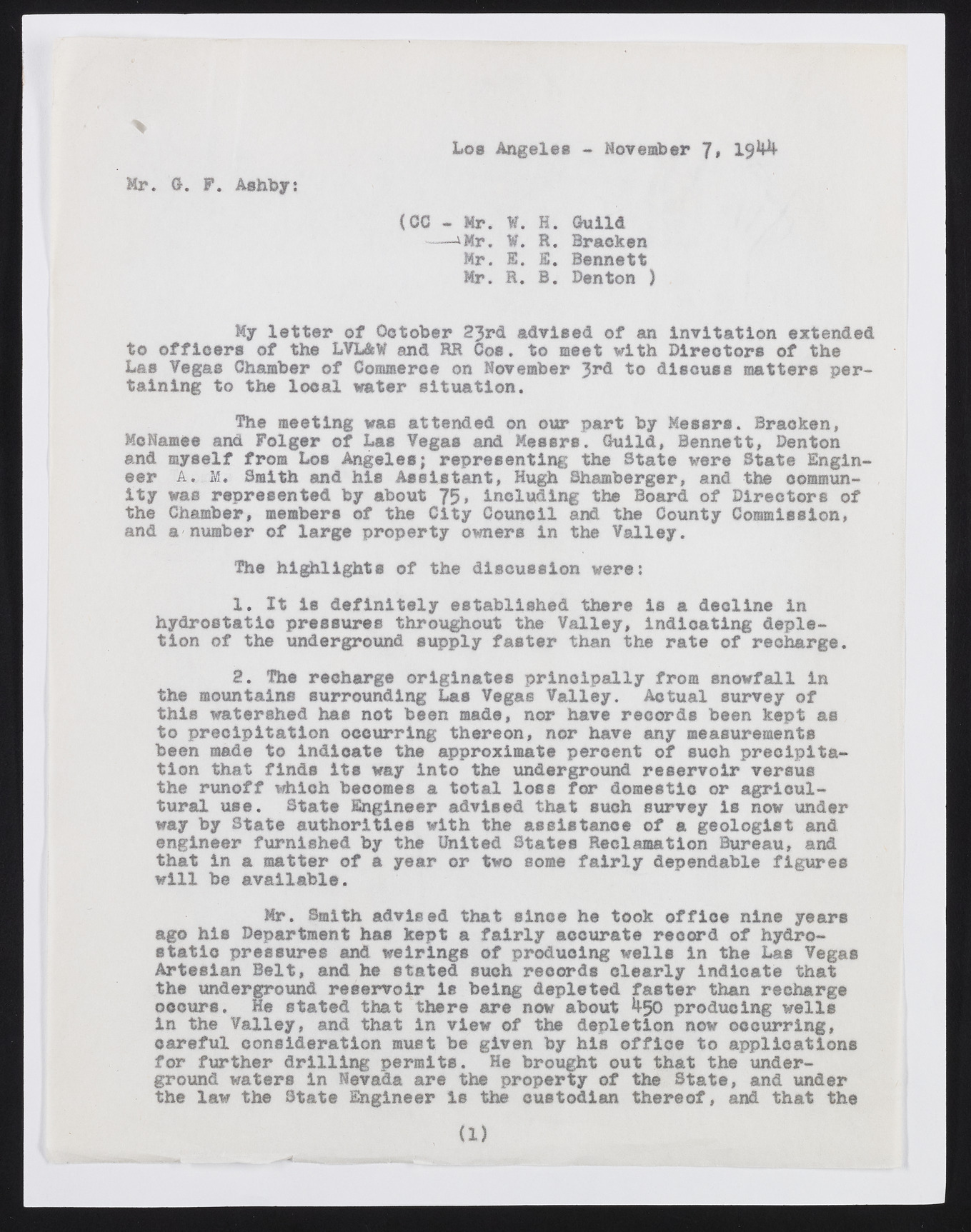Copyright & Fair-use Agreement
UNLV Special Collections provides copies of materials to facilitate private study, scholarship, or research. Material not in the public domain may be used according to fair use of copyrighted materials as defined by copyright law. Please cite us.
Please note that UNLV may not own the copyright to these materials and cannot provide permission to publish or distribute materials when UNLV is not the copyright holder. The user is solely responsible for determining the copyright status of materials and obtaining permission to use material from the copyright holder and for determining whether any permissions relating to any other rights are necessary for the intended use, and for obtaining all required permissions beyond that allowed by fair use.
Read more about our reproduction and use policy.
I agree.Information
Digital ID
Permalink
Details
More Info
Rights
Digital Provenance
Publisher
Transcription
Los Angeles - November 7» 19 W* Mr. G. F. Ashby: (CC - Mr. ¥. — iMr. W. Mr. E. Mr. R. H. Guild R. Bracken E. Bennett B. Denton ) My letter of October 23rd advised of an invitation extended to officers of the LVL&Vf and HR Cos. to meet with Directors of the Las Vegas Chamber of Commerce on November 3rd to discuss matters pertaining to the local water situation. The meeting was attended on our part by Messrs. Bracken, McNamee and Folger of Las Vegas and Messrs. Guild, Bennett, Denton and myself from Los Angeles; representing the State were State Engineer A. M. Smith and his Assistant, Hugh Shamberger, and the community was represented by about 75* including the Board of Directors of the Chamber, members of the City Council and the County Commission, and a number of large property owners in the Valley. The highlights of the discussion were: 1 . It ie definitely established there is a decline in hydrostatic pressures throughout the Valley, Indicating depletion of the underground supply faster than the rate of recharge. 2. The recharge originates principally from snowfall in the mountains surrounding Las Vegas Valley. Actual survey of this watershed has not been made, nor have records been kept as to precipitation occurring thereon, nor have any measurements been made to lndioate the approximate percent of such precipitation that finds its way into the underground reservoir versus the runoff which becomes a total loss for domestic or agricultural use. State Engineer advised that such survey is now under way by State authorities with the assistance of a geologist and engineer furnished by the United States Reclamation Bureau, and that in a matter of a year or two some fairly dependable figures will be available. Mr. Smith advised that since he took office nine years ago his Department has kept a fairly accurate record of hydrostatic pressures and weirInge of produolng wells in the Las Vegas Artesian Belt, and he stated such records clearly indicate that the underground reservoir is being depleted faster than recharge occurs. He stated that there are now about tyfjO producing wells in the Valley, and that in view of the depletion now occurring, careful consideration must be given by his office to applications for further drilling permits. He brought out that the underground waters in Nevada are the property of the State, and under the law the State Engineer is the custodian thereof, and that the (1)

